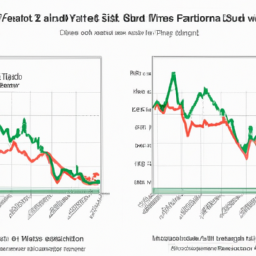Index funds and exchange-traded funds (ETFs) are both great wealth-building tools that work well in many different investment scenarios. How do you compare ETF vs. mutual fund investing? It's a question that many new investors wonder about. While ETFs and mutual funds are similar in some ways, there are some key differences that investors should understand before choosing which one to invest in. In this article, we'll break down the differences between ETFs and index funds, and help you decide which one is right for your investment strategy.
First, let's start with the basics. Both ETFs and index funds are designed to track a particular index, such as the S&P 500. This means that they provide exposure to a basket of stocks that make up the index, allowing investors to diversify their portfolio without having to hand-pick individual stocks. Both ETFs and index funds also offer low-cost diversification, which can be especially attractive to investors who are just getting started with investing.
ETFs and mutual funds both pool investor money into a collection of securities, exposing investors to many different securities without having to purchase them individually. However, there are some key differences between these two investment vehicles. First, ETFs trade like a stock on an exchange, which means that their price can fluctuate throughout the day. Index funds, on the other hand, are priced at the end of the trading day, based on the net asset value (NAV) of the underlying securities.
Another key difference between ETFs and index funds is their expense ratios. ETFs tend to have lower expense ratios than index funds, which means that they are typically cheaper to own in terms of management fees. This is because ETFs are passively managed, which means that they don't require a team of managers to actively choose which securities to buy and sell. Instead, they simply track the underlying index.
When comparing ETFs vs index funds, investors should also consider tax implications. ETFs are generally more tax-efficient than index funds, because they are structured in a way that allows investors to avoid capital gains taxes until they sell their shares. Index funds, on the other hand, can be subject to capital gains taxes if the fund manager sells securities within the fund.
Mutual funds and index funds are popular options for diversifying your portfolio without having to hand-pick individual stocks. Mutual funds offer guidance from fund managers, while index funds are passively managed. When it comes to expenses, index funds tend to be cheaper than mutual funds, but mutual funds can offer more guidance and support to investors.
Gold ETFs and mutual funds have many similarities, but there are some key differences to consider. Gold ETFs are structured to track the price of gold, while gold mutual funds invest in companies that mine or produce gold. Gold ETFs are typically more liquid and have lower expense ratios than gold mutual funds, but gold mutual funds can offer exposure to a broader range of gold-related investments.
Finally, let's take a closer look at some of the best index funds tracking the S&P 500. The SPDR S&P 500 ETF (SPY) is one of the most popular ETFs tracking the S&P 500, with over $350 billion in assets under management. Other popular options include the iShares Core S&P 500 ETF (IVV) and the Vanguard S&P 500 ETF (VOO). When comparing these funds, investors should look at factors such as expense ratios, assets under management, and how closely the fund tracks the index.
In conclusion, ETFs and index funds are both great options for investors looking to diversify their portfolio and gain exposure to a range of securities. When choosing between these two investment vehicles, investors should consider factors such as expense ratios, tax implications, and the level of guidance and support offered by the fund manager. By understanding the key differences between ETFs and index funds, investors can make informed decisions about their investment strategy.
Ticker: SPY, IVV, VOO
